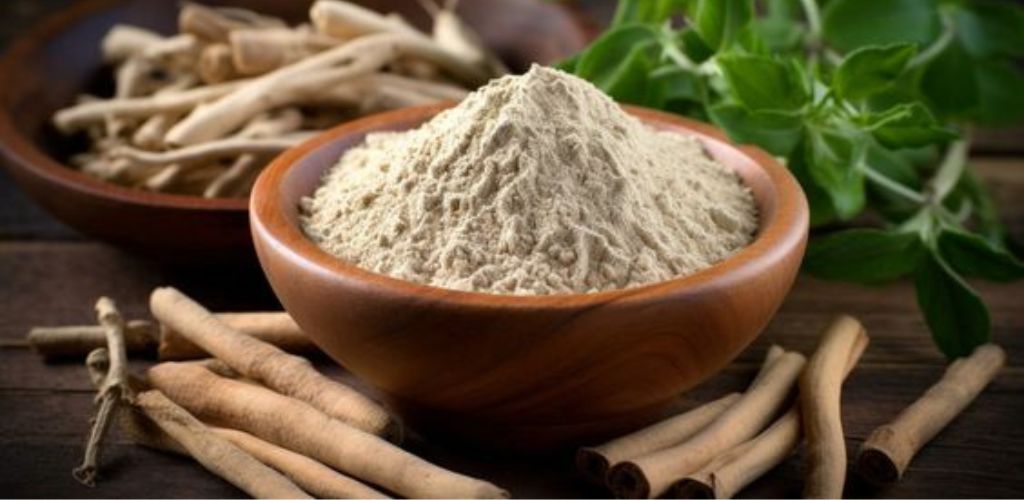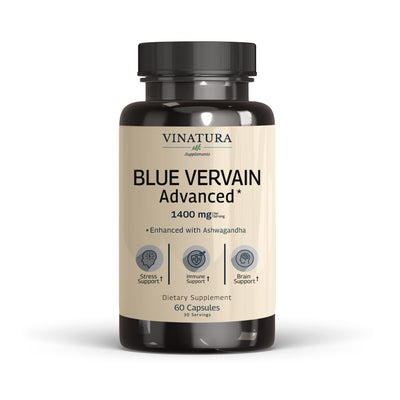
How Long Does Ashwagandha Stay In Your System?
Ashwagandha, a revered herb in traditional Indian medicine, is known for its stress-relieving properties. But how long does Ashwagandha stay in your system? This article aims to explore this aspect in detail, providing insights into the herb's longevity, usage, and the factors that influence its duration in the body.
Before exploring further, please read the disclaimer located at the end of this webpage.
How Long Does Ashwagandha Stay In Your System?

Ashwagandha exhibits a unique dichotomy in its stay within the human body. This can be attributed to its compounds, which dissolve in fat and water.
Fat-soluble components of Ashwagandha typically persist in the body for up to a month, allowing the herb to exhibit its effects for an extended period, often noticed at least four weeks after usage.
On the other hand, water-soluble components are eliminated much faster, within just two days.
Despite its long-term presence in the body, Ashwagandha's elimination time is relatively short, within 2 - 4 hours. This brief duration is often associated with its short-term impact on pain reduction [6, 7].
Therefore, while the herb's presence in the body varies, its therapeutic effects can be experienced immediately and over a prolonged period.
How Long To Cycle Off Ashwagandha
Cycling off Ashwagandha involves taking periodic breaks from the supplement, a practice common to many supplements. This process allows your body to rest and prevents it from developing a tolerance to the herb's effects.
The duration of these breaks can range from 2 to 4 weeks every 6 to 8 weeks of usage. However, given Ashwagandha's long-lasting effects, this cycle-off period can be adjusted based on your usage goals and your physician's advice.
In various studies monitoring the effectiveness of Ashwagandha, the testing phase has been observed to extend up to 12 weeks [5, 2].
Therefore, it is advisable to consult a healthcare provider to identify an optimal cycle-off duration suitable to your needs and health status.
Can You Take Ashwagandha Daily?
Ashwagandha can be taken daily. Its long-lasting, fat-soluble components remain in the system for up to a month, delivering continuous effects over that period, while its water-soluble components are eliminated much more quickly.
This balance allows daily Ashwagandha supplementation, providing immediate and prolonged benefits.
However, observing a cycle-off period after 6 to 8 weeks of daily usage is essential. This allows your body to rest and detoxify, preventing tolerance build-up.
When Should You Stop Taking Ashwagandha

Side Effects
While Ashwagandha has been proven to be a safe herbal remedy with no reported side effects in many studies [1], it is essential to note that excessive consumption can lead to adverse effects [4].
Overdosing on Ashwagandha may result in stomach pain, diarrhea, and nausea. These side effects typically ensue when the intake exceeds the recommended dosage.
Pregnancy And Breastfeeding
The use of Ashwagandha during pregnancy and breastfeeding remains a complex and sensitive issue. Some studies indicate potential benefits yet also caution against its usage during pregnancy due to an associated risk of miscarriage [3,4].
This contradictory information makes it crucial for women to exercise caution during pregnancy or when breastfeeding.
As Ashwagandha components stay in the body for up to a month, it is also imperative to consider the longevity of the herb in one's system.
Given the sensitive nature of pregnancy and breastfeeding, it's always advisable to consult with a healthcare provider before starting or continuing the use of Ashwagandha or any other supplements.
Surgery
Typically, during surgical procedures, various anesthetic and pain-relieving drugs are administered to the body.
To ensure these drugs perform their roles effectively and to avoid any unwanted drug interactions, it becomes essential to stop the intake of Ashwagandha and other similar supplements well in advance.
The recommended period to halt the use of Ashwagandha before surgery is usually two weeks. This measure can contribute to safer surgical procedures and more predictable post-operative recovery.
Certain Medication
Ashwagandha interacts with certain medications, potentially leading to adverse effects.
A key consideration is its interaction with sedatives and anti-anxiety drugs. Since Ashwagandha itself possesses soothing properties, its combination with similar medications may result in excessive sedation [4].
It's also advisable to exercise caution when combining Ashwagandha with medications for diabetes, high blood pressure, immune system suppression (immunosuppressants), anti-seizure medications, and thyroid hormone medications.
Frequently Asked Questions
How Long Can You Take Ashwagandha?
Ashwagandha typically takes 4-12 weeks to show effectiveness, which can vary based on individual usage goals and health status. Therefore, patience is crucial when taking Ashwagandha daily to see results.
How To Cycle Ashwagandha?
The recommended cycling time for Ashwagandha is 2 to 4 weeks, every 6 to 8 weeks. It's important to note that Ashwagandha's effects may last beyond eight weeks, so it's advisable to be flexible in how it's cycled.
How Do I Know Which Ashwagandha Supplement To Take?
Selecting the right Ashwagandha supplement depends on individual usage goals and health status, as each type varies in concentration and usage.
Does Ashwagandha Stop Working After A While?
Based on user observations, Ashwagandha's effectiveness may diminish after discontinuation. However, this may also be due to the body's increased tolerance from prolonged usage. Cycling off Ashwagandha and restarting intake after a break can help maintain its effectiveness.
Does Ashwagandha Work Long-Term?
Ashwagandha's effects are primarily long-term, benefiting both mental and physical health. Its fat-soluble components stay in the body for up to a month, providing long-lasting effects.
Can You Feel Ashwagandha Right Away?
Usually, Ashwagandha takes time to show its effects, with noticeable changes requiring consistent use for 4-12 weeks.
How Does Ashwagandha Make You Feel?
Ashwagandha can lead to undesirable side effects, including abdominal discomfort, diarrhea, and nausea. However, it can also promote relaxation, well-being, increased energy levels, better sleep quality.
Conclusion
In conclusion, “How long does ashwagandha stay in your system?”, the answer is around. With its wide-ranging health benefits, Ashwagandha can be an excellent supplement for improved physical and mental well-being. However, it's crucial to consider factors such as proper dosage, cycling, and potential side effects. Pregnant and breastfeeding women, individuals undergoing surgery, and those on specific medications should use Ashwagandha under medical supervision. Due to Ashwagandha's lasting presence in the system, it's essential to customize the intake for safe and effective usage.
References
- [1] Bonilla, D. A., Moreno, Y., Gho, C., Petro, J. L., Odriozola-Martínez, A., & Kreider, R. B. (2021). Effects of Ashwagandha (Withania somnifera) on Physical Performance: Systematic Review and Bayesian Meta-Analysis. Journal of Functional Morphology and Kinesiology, 6(1), 20. https://doi.org/10.3390/jfmk6010020
- [2] Chengappa, K. N. R., Bowie, C. R., Schlicht, P. J., Fleet, D., Brar, J. S., & Jindal, R. (2013). Randomized Placebo-Controlled Adjunctive Study of an Extract ofWithania somniferafor Cognitive Dysfunction in Bipolar Disorder. The Journal of Clinical Psychiatry, 74(11), 1076–1083. https://doi.org/10.4088/jcp.13m08413
- [3] Kiran, S., Sanap, & Jadhav, V. (2178). A REVIEW ON ASHWAGANDHA [WITHANIA SOMNIFERA]. In International Research Journal of Modernization in Engineering Technology and Science @International Research Journal of Modernization in Engineering (pp. 2582–5208).
- [4] Umadevi, M., Rajeswari, R., Sharmila Rahale, C., Selvavenkadesh, S., Pushpa, R., Sampath Kumar, K., & Bhowmik, D. (2012). THE PHARMA INNOVATION Traditional And Medicinal Uses of Withania Somnifera. 1(9).
- [5] Ziegenfuss, T., Kedia, A., Sandrock, J., Raub, B., Kerksick, C., & Lopez, H. (2018). Effects of an Aqueous Extract of Withania somnifera on Strength Training Adaptations and Recovery: The STAR Trial. Nutrients, 10(11), 1807. https://doi.org/10.3390/nu10111807
- [6] Murthy, M. N. K., Gundagani, S., Nutalapati, C., & Pingali, U. (2019). Evaluation of Analgesic Activity of Standardised Aqueous Extract of Withania somnifera in Healthy Human Volunteers using Mechanical Pain Model. JOURNAL of CLINICAL and DIAGNOSTIC RESEARCH. https://doi.org/10.7860/jcdr/2019/37590.12441
- [7] Nalini, P., Manjunath, K., SunilKumarReddy, K., & Usharani, P. (2013). Evaluation of the analgesic activity of standardized aqueous extract of Withania somnifera in healthy human volunteers using Hot Air Pain Model. Semantic Scholar. https://www.semanticscholar.org/paper/Evaluation-of-the-analgesic-activity-of-aqueous-of-Nalini-Manjunath/598e7654bbdf771562f9b9ab4cd4a1a6bfcd0d86
Author

Product Disclaimer
The dietary supplement products mentioned on this website are formulated based on scientific research and adhere to FDA guidelines for dietary supplements. However, the content of the articles has not been evaluated by the Food and Drug Administration (FDA) and is not intended to promote or endorse any specific product. Any products sold on this website are not intended to diagnose, treat, cure, or prevent any disease.
Opinions and Endorsements
Any claims, statements, or opinions expressed in the articles are those of the author(s) and do not necessarily reflect the views or opinions of the manufacturers of the dietary supplement products. The products sold on this website are separate from the content of the articles and are not directly endorsed or associated with the information presented here.
Liability Disclaimer
The author(s) of the articles, website, and manufacturers of the dietary supplement products do not assume any liability for any potential consequences arising from the use of the information provided in the articles. It is recommended that individuals consult with a qualified healthcare professional before making any dietary or lifestyle changes, including the use of dietary supplements.
Product Usage
Please refer to the product labels and packaging for specific usage instructions and guidelines for the dietary supplement products sold on this website.
Customer Support
For any concerns or questions regarding the dietary supplement products, please contact our customer support team, who will be more than happy to assist you.





Leave a Comment
Be the first to comment.
What do you think?